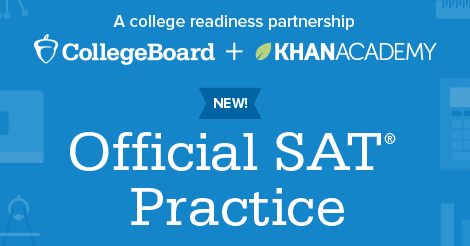As the burdens of the beginning of the school year begin to rest on student’s shoulders, it can be hard to find time to study for the PSAT. For many students, the PSAT is a day off from classes, but for some this test is an invaluable resource to help gauge where they are in terms of standardized tests. On October 10, All freshman, sophomores, and juniors will take the PSAT, and once again, Jesuit will use Khan Academy to help students prepare for this test.
What is the PSAT?
The PSAT, or Preliminary Scholastic Aptitude Test, is a 2 hour 45-minute standardized test that is used to prepare students for the real SAT. While a student’s score on this test will not count towards his or her college admissions, a person can qualify to be a National Merit Scholar if he or she does well on the test.
The PSAT is nearly identical to the actual SAT, however, the PSAT is 15 minutes shorter, and there is no essay on this test.
There are two sections on the test: Evidence-Based Reading and Writing, and Mathematics. Each section is scored on a scale of 160-760, and the maximum score is 1520.
How do I Prepare?
Because the results of this test are not sent to colleges, it really is not a test to stress too much over, especially if you are a freshman or sophomore. However, that being said, it should not be overlooked either, because it allows students to see what the real SAT is like.
Thanks to faculty members like Dr. Kirby and Mr. Billingham, preparing for the PSAT is pretty simple. They have set up preparation classes at lunch where they serve as resources to help students master new topics needed and to provide general test-taking strategies.
Additionally, students can use Khan Academy to help prepare for the PSAT, as it offers tailored practice problems to individually help each student in categories where they need it.

Mr. Billingham, an algebra and calculus teacher at Jesuit, explained that “Khan Academy has partnered with the College Board, the folks who develop and publish the SAT. Khan Academy’s practice tests were developed with their assistance. As a result, they are an accurate representation of the types of questions and difficulties students will experience. The online tests are graded and the results are then used to tailor which specific skills each student needs to practice.”
Mr. Billingham continued, “you can find what your weak areas are and focus on them, and each of us can do that.” He is very optimistic about the future of test preparation, as he believes the need for teachers for test preparation will be very minimal.
“I think personally, that the future of teaching… is going to get to a point where it’s all machine driven.”
Additionally, many English and math classes are reviewing important concepts for the PSAT by doing review activities in class.
When Should I Start Studying?
Even though October 10 may seem far away, it is really only a few weeks away. Because of this, it is important to start studying sooner rather than later if you want as little stress as possible.
If you really want to do well on the PSAT, it is important to start reviewing concepts you are unfamiliar with early on, so you have time to learn them.
Also, Jesuit has incentivized studying for the PSAT on Khan Academy, as “the 10 sophomores and 10 juniors who do the most recorded practice problems and/or show the greatest increase in their score over last year will be treated to a special catered lunch (with special guests!) after scores are released. The top 10 students in the freshman class will also be invited!” according to Moodle.
All in all, the PSAT is just a test to help you get a feel for what the real SAT will be like. If you do not perform very well, it is not a huge deal, because you still have plenty of time to hone your skills.
For more news on Jesuit Academics, stay tuned to The Roundup!






